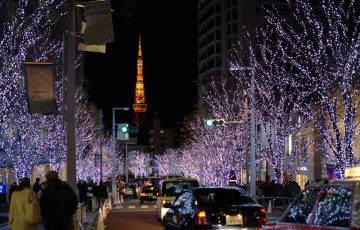Japan has one of the strictest and strangest entry bans in place.
The government says that “it is not safe to let people from outside in.”
The international student community argues that Japanese people can leave the country and come back in from the same country where foreigner students cannot enter. Moreover, 80,000 Olympic athletes, trainers, and media could enter during the Tokyo Olympics, a number that is higher than the number of students waiting.
The list of exceptions and “special cases” doesn’t end here: dancers, DJs, musicians, professional wrestlers, JET Program teachers, Japan International Cooperation Agency related people and students sponsored by the Ministry of Education, Culture, Sports, Science and Technology can all enter Japan. At the same time privately funded students who have been investing time, money and energy to study in Japan, have been waiting for over a year to enter the country. They have been basically forgotten by the government and the Ministry of Education, since no news or timeline has been given to them since March 2020.
We asked prospective Japanese language and university students a few questions to understand the impact the ban was having, including:
- Why does studying in Japan mean so much to you?
- How do you think that as a student in Japan you will add benefit to Japanese society?
- What will it mean to you if there is another delay for students to be able to come to Japan?
We collected 900 stories and published a selection of them on educationisnottourism.com, and we also held more in-depth interviews with some respondents.
 Monica, a Japanese language student from Italy, has mixed feelings toward Japan right now.
Monica, a Japanese language student from Italy, has mixed feelings toward Japan right now.
When did you apply to come to Japan originally?
My original plan was to arrive in Japan at the beginning of April 2020.
Why does studying in Japan mean so much to you?
It’s a country I’ve come to love with all my heart. I spent three months in Fukuoka as a university student back in 2018. Ever since returning home, I’ve done everything in my power to come back and spend as much time there as possible.
How is the Japan entry ban affecting you and your life?
I’m in a perpetual state of waiting, which is not ideal. The hardest part is not knowing when Japan will open its borders. This means that I cannot look for or start a job in my area, because the borders could open at any time, and then I’ll have to pack and leave for Japan. Mental health has been tough, too. I’m sure every other person whose dreams got swept away by COVID-19 feels more or less the same. So, yes, the ban affected my life in the worst way.
What are your plans after you finish your studies in Japan?
I’d love to work in the editing field, despite knowing how difficult it is. The language school is, of course, going to be crucial for me. I cannot reach the required Japanese level if I don’t study in Japan. I also believe I could make good use of my degree in foreign languages. And, well, I’m an Italian, I think our country hasn’t lost its charm, right?
What will it mean to you if there is another delay for students before they can come to Japan?
Japan hides behind its reputation of meticulousness, order, carefulness and civic duty. Students like me are paying the price for the appalling lack of organization on the pandemic.
I’m disappointed because every single one of us is withering in this endless loop of state of emergency after state of emergency. We are ready to follow any measure required to avoid the spread of the virus, but Japan still leaves us outside the door like some rabid stray dogs.
It pains me to write this because I love Japan, so I guess it means I must accept its flaws. But I was hoping to get a chance to see Japan rise again after the pandemic and be there for it.
The feelings that Maria has shared with me are common to many other international students. There is a sense of unfairness and a sense of being forgotten by a government that has other priorities right now.
 Other students, I interviewed have a different opinion of Japan. One such student is Roel, an American Japanese language student from Hawaii.
Other students, I interviewed have a different opinion of Japan. One such student is Roel, an American Japanese language student from Hawaii.
When did you apply to come to Japan?
I applied to come in October 2020.
Why does studying in Japan mean so much to you?
Since I discovered Go! Go! Nihon (a study abroad agency) in 2017, I strived to work hard and save money to go to Japan. It was an arduous path to follow, but a rewarding one if I could pull it off.
After waiting for so long, I learned to be patient with myself. This pandemic was beyond our control, and Japan is doing whatever is necessary to bring it back to a near-normal state. The yearning feeling will always be there with me, but that has given me the strength to keep going. When I finally get to go to Japan, it will definitely be worth the wait.
What is your opinion about the situation of international students waiting to enter Japan and how do you think things can improve?
Is important to understand why Japan has still closed their borders when the rest of the world has started to open theirs. News articles can tell one side of the story about Japan’s actions, but there is also another side.
I have lived in Japan for several years and I studied about Japan in university, so I generally understand why Japan has kept its borders closed longer. Part of the reason goes back hundreds of years when they were isolated from the rest of the world to prevent pathogens and they were able to sustain themselves on their own without international intervention. Their mode of sakoku, or national isolation, is the main reason they are so unique. It is a dreaded word for us language students. That means that it usually takes a longer time for them to open back up.
Instead of forcing Japan to open their borders, we should help Japan in their efforts to open so they can welcome us with open arms.
As an example, I went back a decade ago following the Great East Japan Earthquake and tsunami and saw the support the world has given them in such a dire time. We cheered them on to never give up and we knew they were resilient in recovering from such a disaster. Japan now is catching up with the rest of the world and we must cheer them on again. We need to assure that we are here to make Japan a better place, not criticize their sakoku tendencies.
I am still working that same job that I almost quit, and everything that I need to go to Japan is still on hand. I decided for a long time that I am going to work as hard as I can achieve my hopes and dreams. It is going to be difficult, and a test of patience, but it will be worth it when the time comes. And when that comes, I, along with many others, will go full throttle to make our adventures happen.
Hold on a little longer everyone, we can do this!
コロナに負けるな! がんばれ日本!
(Korona ni makeruna! Ganbare Nippon!
(Don’t lose to the Coronavirus! You can do it Japan!)
Please visit “Open the borders to safe study in Japan Association” website for more details.
Story by David Rossi
Executive Director
Open the borders to safe study in Japan Association
















Recent Comments